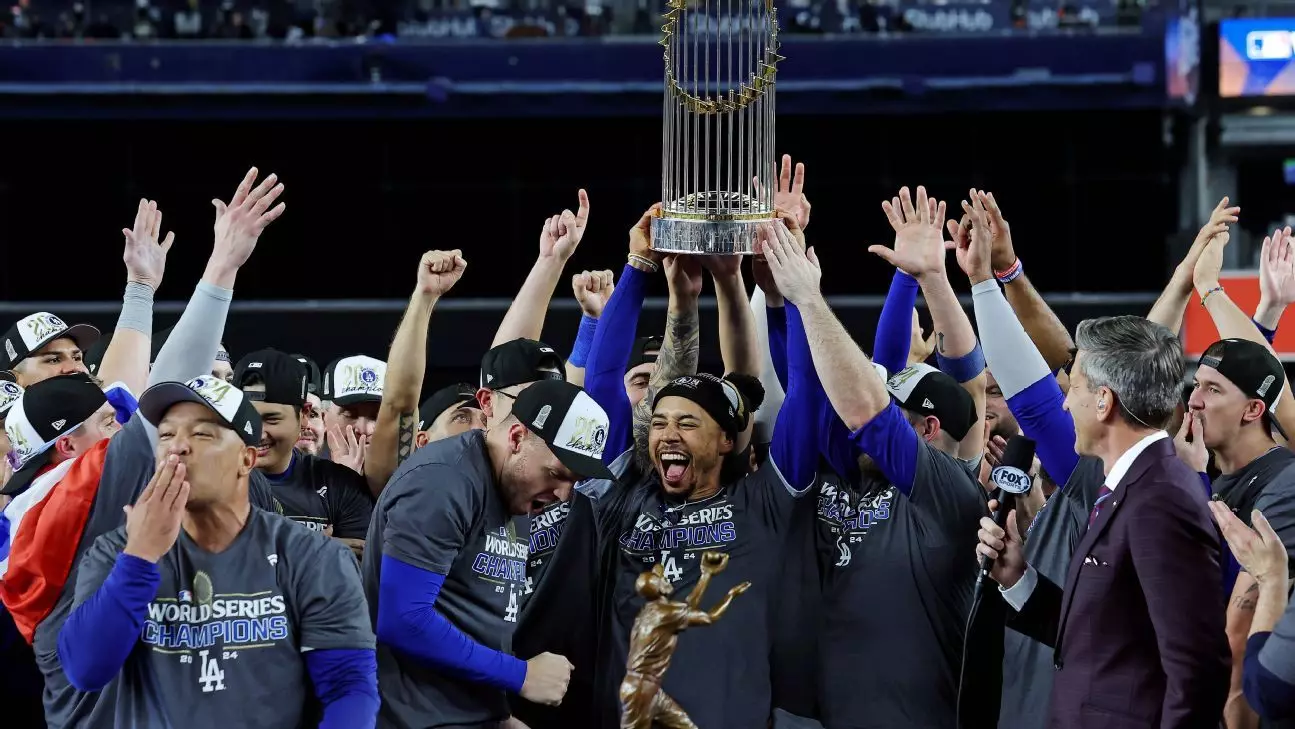The Los Angeles Dodgers have marked a significant milestone in their illustrious history by accepting an invitation to celebrate their recent World Series victory at the White House on April 7. This visit coincides with a three-game series against the Washington Nationals and represents a momentous occasion not just for the team, but for baseball fans who revel in the rich tapestry of achievement and camaraderie that defines America’s pastime. The invitation serves as an acknowledgment of the Dodgers’ triumph, reinforcing the notion that sports transcend mere games, reaching into the very fabric of national pride and unity.
The Dodgers’ manager, Dave Roberts, emphasized the team’s honor in receiving this invitation, noting that it is a customary rite for World Series champions. However, this occasion carries more weight than just celebration. It comes at a time when sports figures are increasingly seen as leaders, navigating complex societal landscapes that extend into pertinent social justice realms. Roberts’ remarks indicate an awareness of the symbolic power that athletic achievements can wield when recognized at such high-level events.
A Troubling Context: Jackie Robinson and DEI Issues
The backdrop of the Dodgers’ White House visit is particularly salient in light of recent controversies concerning diversity, equity, and inclusion (DEI). Jackie Robinson, the legendary figure who broke baseball’s color barrier, had his story on military service temporarily removed from the Department of Defense’s website amid efforts to purge references to DEI from government publications. This incident raises pivotal questions about the portrayal of past heroes and their legacies, particularly in an era where conversations about race and representation remain charged and divisive.
While Roberts expressed ignorance about the removal of Robinson’s narrative, his happiness at the reinstatement highlights the importance of acknowledging historical figures who fought not only on the baseball diamond but also in the bigger arenas of life. Robinson, who served in the Army and paved the way for future generations of athletes, symbolizes resilience and the fight for equality, making it imperative to keep his story alive and accessible.
Personal Journeys and Political Reflections
Roberts’ journey to the White House invites reflection on his previous statements regarding political engagements. In 2019, he indicated he wouldn’t attend a White House visit if the Dodgers were to win the World Series. Yet, his evolution over the years illustrates a growth in perspective, as he now recognizes the significance of visiting the presidential office, irrespective of political affiliations or past criticisms. “I respect the position. It’s the highest office in our country, certainly in the world,” he stated. This acknowledgment of the office’s importance suggests a broader understanding of sports as not only a competition but a platform that can bridge various divides.
Perhaps what stands out most is the realization that while sport can be a refuge, it is also a mirror reflecting society’s challenges and triumphs. The intersection of sports and politics—the place where public figures wield significant influence—offers both opportunities and hurdles for athletes. Being conscious of these dynamics can empower players and organizations to forge meaningful conversations beyond the ballfield.
Community Impact: Dodgers’ Role in Philanthropy
The Dodgers’ visit also exemplifies a larger commitment to community engagement, particularly as their chairman, Mark Walter, and part-owner Magic Johnson take the lead in philanthropic efforts to support wildfire recovery in California. This dedication underscores a broader trend among sports teams to utilize their platforms for social good. The commitment of $100 million to rebuild efforts showcases how sports franchises can play pivotal roles in their communities, beyond the statistics and standings that dominate headlines.
The intertwining of sports and community welfare presents a hopeful narrative, indicating that while championships are celebrated, the impact of athletes and teams can reverberate much deeper. The Dodgers’ recognition of societal issues and their willingness to provide support fosters a sense of responsibility that resonates with fans and players alike, redefining what it means to be champions in today’s world.
Through these dimensions, the Dodgers’ journey to the White House becomes more than just a ceremonial visit—it morphs into a cultural moment, encapsulating the complexities of legacy, engagement, and social responsibility in the realm of sports. This narrative serves as a reminder that the role of athletes transcends the confines of the playing field and holds the power to inspire change far beyond the game.


Leave a Reply